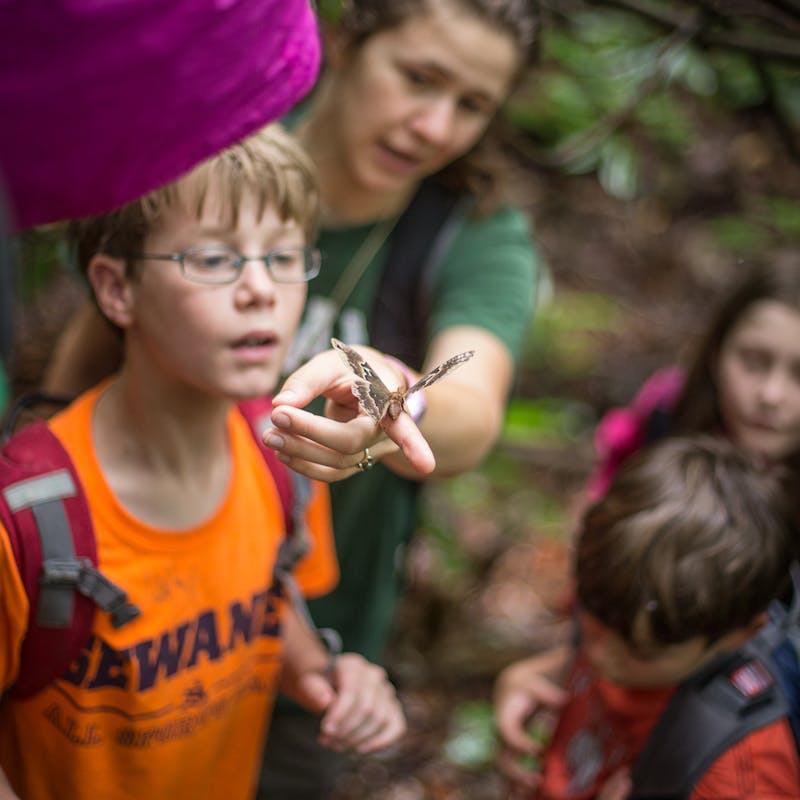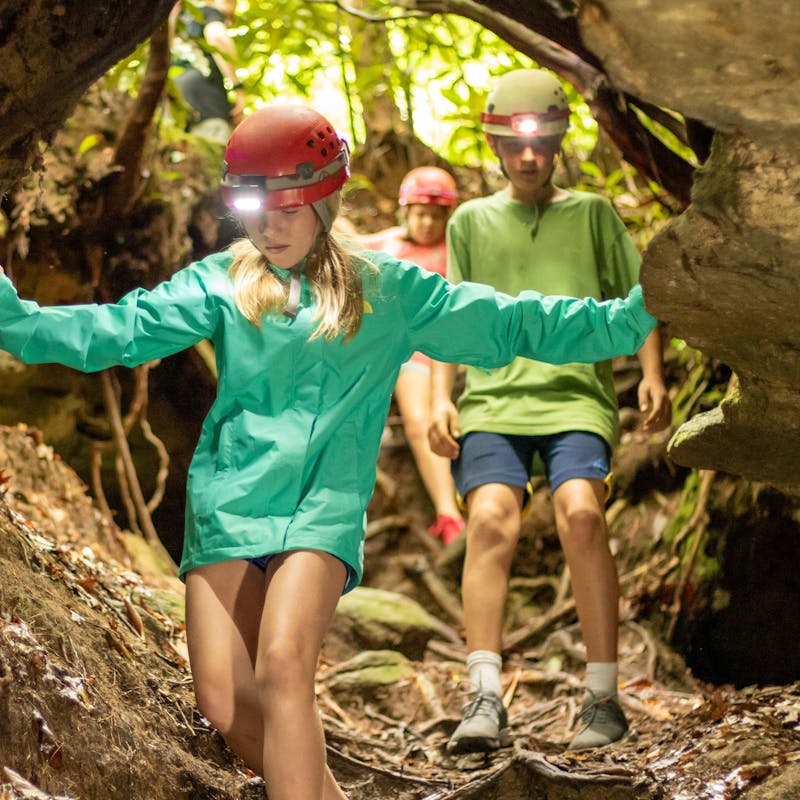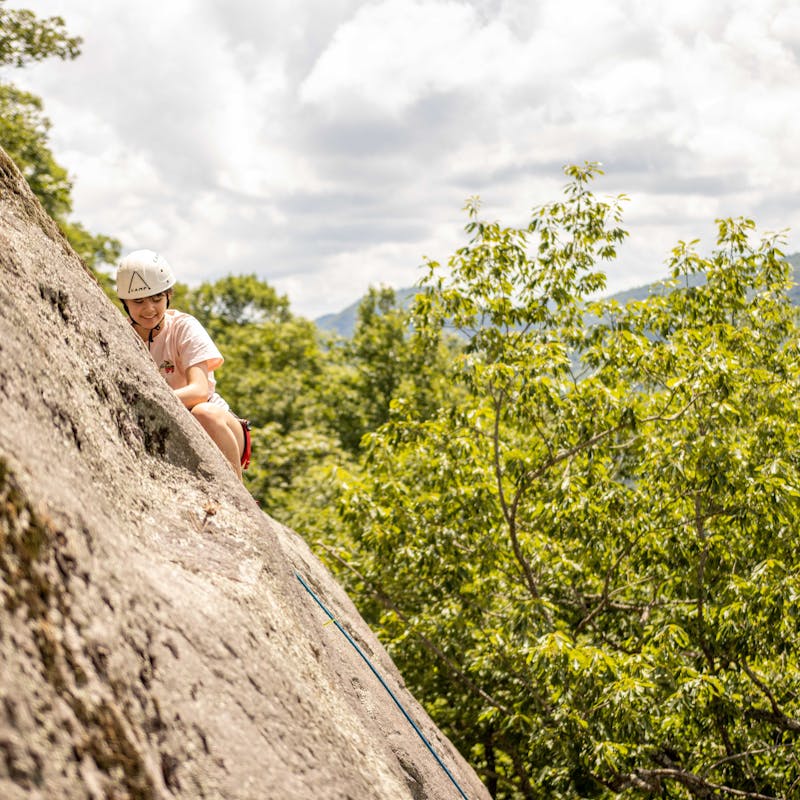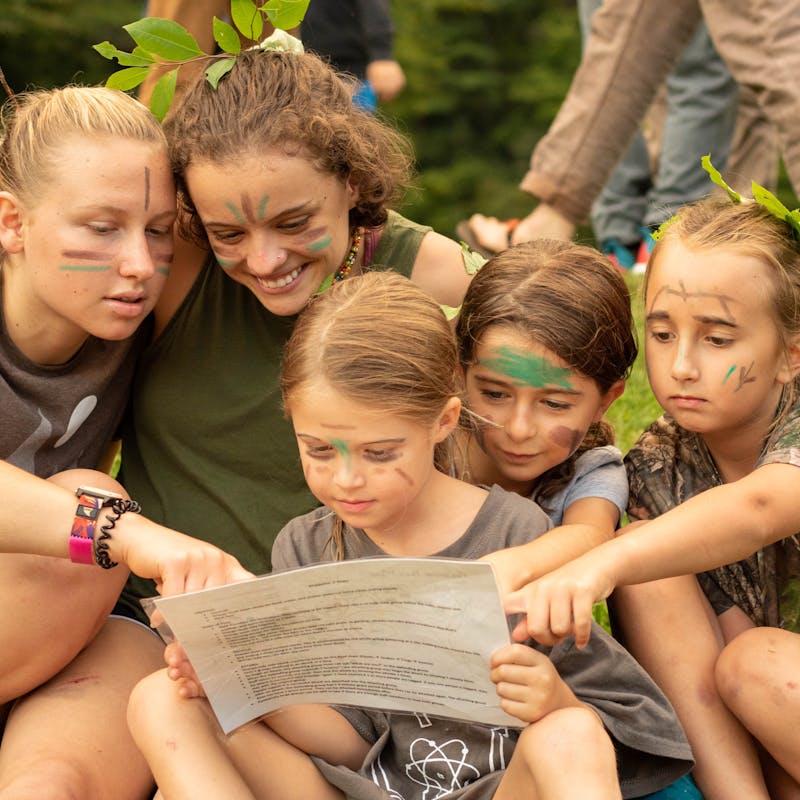Educational Philosophy
Play Bravery VideoWe build better people.
Designed by a child psychologist, our program will challenge and nurture your child on the path to a healthy, happy, and meaningful life.
To achieve this mission, we provide four distinct experiences - discovery, growth, independence, and community. Through these experiences, we believe we enrich the four most important predictors of a healthy and happy life: curiosity, resilience, autonomy, and connection.
Learn how our program can strengthen those qualities for your child.
You’ll also find our advice for ways to study, practice, and measure success at home based on our 35 years of youth development experience.
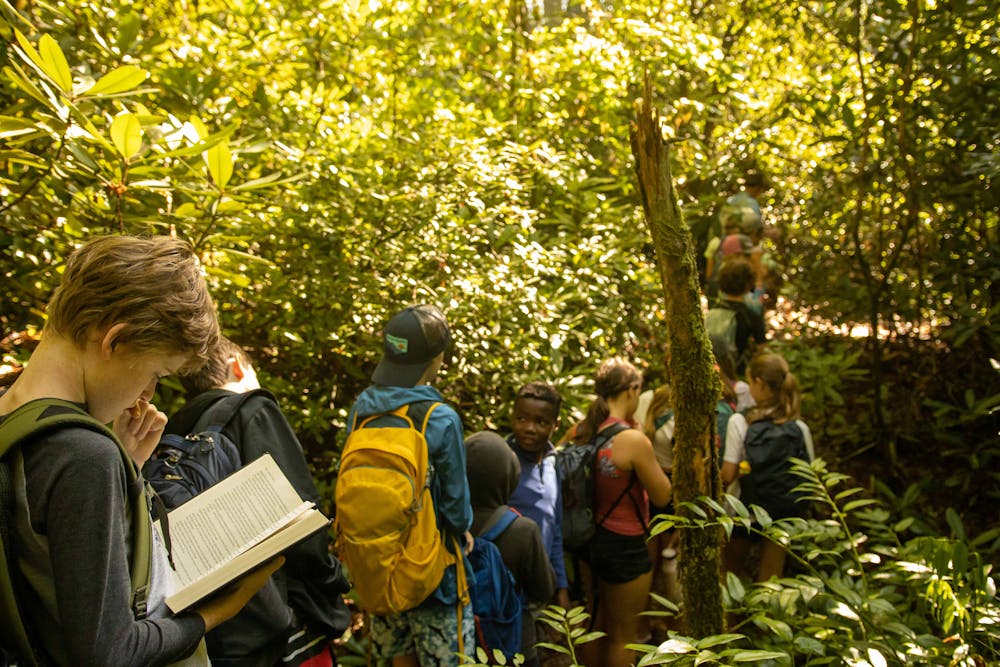
Environment of Discovery
Tucked within 3,400 acres of a pristine wildlife preserve, GRP is a camp like no other. Each day, our campers walk through bright green forests, explore caves and splash through streams. These places are rich with life to discover, from insects and fungi to birds, bears, and other wildlife. When our campers walk this land of beauty and mystery, they cultivate curiosity.
Curiosity is a life skill.
Scientists who study success find that curious people tend to find contentment and high achievement later in life. We hope our campers leave with an enriched sense of value and gratitude for the natural world. More importantly, however, our campers leave with a love of learning and a heart full of questions. Guided by our trained naturalists and educators, our campers begin to question their place in the family of things. They start to ask hard questions about how to make themselves – and the world – better.
- Study it - Read this primer on cultivating curiosity by Karen Stephens, director of the Illinois State University Child Care Center.
- Practice it - An easy way to cultivate curiosity is to make a small change to your language. We get lots of questions at camp, and we train our staff to respond in a way that encourages more. Next time you hear a question, instead of saying, “That’s a good question,” follow youth development expert Michael Brandwein’s advice and say, “That’s a smart question!” That shifts your emphasis from the question being good to your child being smart. As we like to say, “Smart people ask questions.”
- Measure it - It might sound strange, but we feel we’re meeting our goal when our campers make us curious. Whether it’s at the dinner table, on a hike, or in the cabin, we know we’re cultivating curiosity when we have to stop and think. When we have to respond to a child’s question, “You know, I’ve never thought about it that way before.” The more we ask our colleagues to help us answer a child’s question, the more we are becoming curious – and we know we’re cultivating curiosity in our campers.
Culture of Growth
When campers attend GRP for the first time, they will see new faces, eat different foods, and experience different kinds of trees. They will also try a range of activities, from archery and canoeing to painting or performing in a play. If campers attend our two- or three-week sessions, they will embark on a two-night backpacking adventure through our forest. These situations give children a priceless opportunity: the chance to grow from unfamiliar and challenging experiences in a safe place.
We embrace the challenges of childhood.
We train our staff to coach children through all kinds of teachable moments, from climbing a mountain to painting a deer. The secret is that camp activities, while lots of fun, more importantly form a scaffold for emotional growth. Campers learn to cope with feelings of homesickness, big or small. They learn to reflect on their actions, move past mistakes, and plan for getting better. They learn to understand their own feelings, and communicate them honestly and effectively with others. Above all, they become more resilient in the face of future physical and emotional challenges.
By building a culture of growth, we take advantage of natural challenges to inspire resiliency in your child. We help your child build a sense of accomplishment, confidence, and courage. We give them the chance to say “Because I did THIS, I can do THAT.”
- Study it - Visit this interactive website on resilience from the Harvard University Center on the Developing Child.
- Practice it - One way we help campers work through an emotional challenge is to frame a jumble of feelings into a positive and future-focused plan. When a camper is feeling homesick, for example, we connect this experience to one of our activities. We say, “It’s normal to feel homesick. Learning to cope with those feelings is a skill, just like shooting a bow. It takes some practice. Now, what can we practice so those feelings don’t bother you so much?” Next time you are helping your child through an emotional challenge, try to find the skill at the heart of it and make a plan to practice that skill.
- Measure it - Resiliency takes time to grow. While the most important signs will come later in life, like responding in a healthy and productive way to heartbreak or other deep setbacks, there are early indicators that your child is becoming more resilient. At GRP, we look for really small moments of success. We see a child who couldn’t tie his shoes last year pause, take a deep breath, and carefully go through the motions – practicing the skills of patience and planning.
Attitude of Independence
Campers love getting to make their own decisions. Will I take a top bunk or a bottom bunk? What food will I put on my plate? What activities will I sign up for? Deciding for yourself is fun, and practicing it helps children become better decision-makers. At GRP, we designed our program to take that feeling further, and make it last long after camp ends.
We infuse an attitude of independence in everything we do.
From signing up for activities and managing their own schedule, to cleaning up after meals, to carrying their own gear on hikes and backpacking trips, campers are coached through the processes of managing themselves responsibly. We even set aside time each day for Free Time, an hour where campers can jump from a wide range of supervised, self-directed play.
Most importantly, independence stretches beyond day-to-day tasks and into our mental and moral lives. When we teach responsibility and independence, we also hold our staff and campers to the idea that our behavior is our choice, and that personal and ethical choices present themselves in each moment. Then we help connect choices to the consequences that may follow, whether that’s getting blisters without socks or seeing careless words hurt a friend. By teaching independence, we foster a sense of autonomy and self-determination in your child.
- Study it - Visit this quick summary of raising independent children from the National Physicians Center. For young children, read this booklet on building independence from Vanderbilt University’s Center on the Social and Emotional Foundations for Early Learning.
- Practice it - A unique practice to refine a feeling of independence can be used in situations of conflict. When your child is stuck with hard feelings about a situation with a friend or sibling, you can coach them to frame the conflict in terms of owning their feelings. Ask them to verbalize how the other person’s behavior made them feel. “When you used my toy without asking, it made me feel mad.” Rather than accuse the other person of having bad intentions, we instead realize that we can only know our own observations and feelings. This practice helps the other person reflect on their feelings and behavior, too, which sets the stage for resolving the conflict.
- Measure it - A sure sign that your child is gaining independence is when you catch them taking responsibility without being prompted. We often hear that when campers return home, they begin to clean up after themselves, set the table, or even ask to help cook.
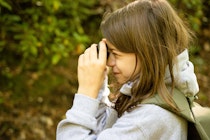
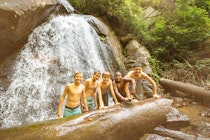
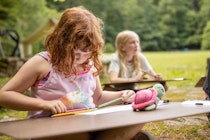
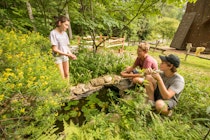
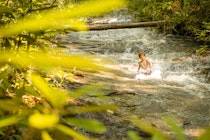
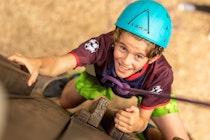
Focus on Community
Our favorite part of camp is that we get to detox from our devices and dive into the creative, intellectual, and fun-loving GRP community. Whether it’s performing in a play, laughing at the dinner table, or singing around a campfire, our program is designed to celebrate these qualities and bring people together.
Children today grow up surrounded by screens.
We understand and appreciate technology, but we know that screens push us toward shallow social networking, which threatens our happiness and mental health throughout life. By focusing on community, we help campers (and staff!) develop the values and skills they need to break below the surface of shallow social networking and dive into deep personal connection. We help campers communicate their feelings. We help them work through conflicts, teach their friends, and hold each other to high standards. We show them how to build meaningful relationships and sustain them through life.
Community is at the heart of our mission to connect children to nature.
As we form a respectful and inclusive community, we guide campers to understand that humans are also part of a larger community of living things we call the natural world. We ask that campers treat the plants and animals they encounter with respect. We ask them to think about their impact on this living community, and practice ways they can learn about, explore, share, and protect the natural world. By focusing on community, we build responsible and respectful members of Earth’s ecosystems.
- Study it - Read this article in Forbes about social media and mental health, and this article in Scientific American about how deeper connections keep us healthy.
- Practice it - The next time you feel the impulse to tag a friend in a post or send a text, think about another way you could communicate with that person. We love getting letters at camp, for example, because it gives plenty of space and time to write something meaningful that we might not consider writing online. Could you write a friend a letter, or give them a call? Even better, could you plan some time to spend with that person face-to-face? Could you do it outside?
- Measure it - One way we measure our success in building a strong community is hearing campers hold each other accountable. If we’re doing our job right, campers, who see something that doesn’t fit into our community, will correct their friends by saying, “Hey, that wasn’t respectful.”
